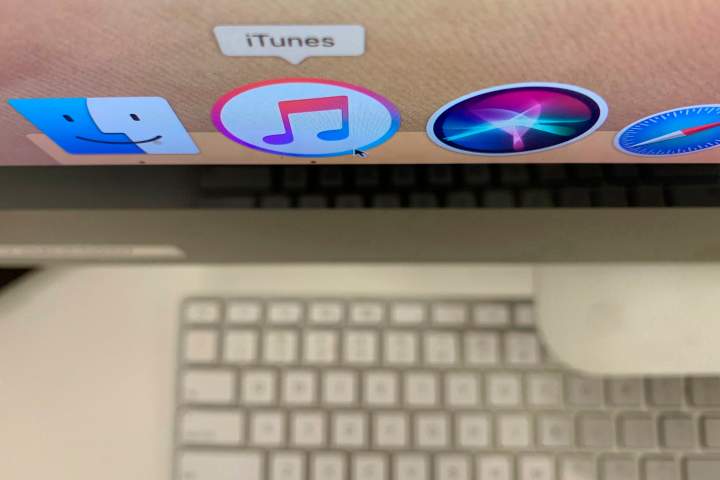Technology
Digital Music Revolution: Is the iTunes Music Store Still Relevant?

The landscape of digital music has undergone significant changes since the dawn of the 21st century, raising questions about the future of the iTunes Music Store. Initially launched on January 9, 2001, by Steve Jobs, iTunes transformed how consumers accessed music, allowing users to purchase and download songs legally. This innovation marked a shift from illegal downloading practices prevalent at the time and positioned Apple as a leader in the digital music industry.
The iTunes Music Store, which opened on April 29, 2003, provided access to a vast library of over 200,000 songs, each priced at 99 cents. As digital music gained traction, the store’s market share soared, reaching an impressive 70 percent globally. By 2014, Apple reported that 35 billion songs had been sold and downloaded through the platform, a figure that has undoubtedly increased in subsequent years.
However, the rise of streaming services has dramatically altered consumer preferences. The launch of Spotify in 2008 introduced a model where music could be accessed for free, leading to a significant decline in digital track purchases. As a result, Apple responded by launching Apple Music in 2015, a subscription service that emphasized streaming over ownership.
Recent data from Luminate indicates a concerning trend for digital music sales. As of this week, Canadians have purchased 744,899 digital albums in 2024, representing a 23 percent decrease compared to the previous year. In contrast, physical formats such as CDs and vinyl records have seen sales of just over one million and 1.1 million, respectively. The decline in digital track purchases mirrors this trend, with fewer than 200,000 tracks sold weekly, down approximately 16 percent from last year.
The current user base of the iTunes Music Store reflects this shift. In the United States, monthly customers have dwindled to about 11.1 million, a stark contrast to the tenfold number of subscribers to Apple Music. This shift suggests that revenue from the store is significantly diminished compared to its heyday.
Despite these challenges, a loyal segment of users remains committed to the iTunes Music Store. Many consumers express a strong preference for owning their music rather than subscribing to streaming services. This sentiment is particularly prevalent among individuals over the age of 35, who have utilized iTunes since its inception. In a recent survey conducted on platforms such as X, Threads, and Bluesky, responses overwhelmingly favored the continued use of iTunes, with many users valuing the legal ownership of music files.
The economic implications for artists further complicate this landscape. While streaming platforms offer minimal payouts—often fractions of a cent per stream—purchases through the iTunes Music Store provide artists with a significantly higher revenue share. Approximately 70 percent of the purchase price goes directly to the artist, making it a preferred option for musicians seeking equitable compensation for their work.
As the digital music marketplace evolves, questions remain about the future of the iTunes Music Store. Apple has not indicated any plans to discontinue the service, suggesting that as long as there is a demand, it will continue to operate. The store still serves specific use cases, particularly for those who prefer to maintain ownership of their music collections.
In conclusion, while the iTunes Music Store faces challenges from the growing dominance of streaming services, its legacy and continued relevance cannot be overlooked. With a dedicated user base and a unique value proposition for artists, the store remains an integral part of the digital music ecosystem. As the debate over ownership versus access continues, many fans are likely to hold onto their iTunes purchases for the foreseeable future.
-

 World3 months ago
World3 months agoScientists Unearth Ancient Antarctic Ice to Unlock Climate Secrets
-

 Entertainment3 months ago
Entertainment3 months agoTrump and McCormick to Announce $70 Billion Energy Investments
-

 Lifestyle3 months ago
Lifestyle3 months agoTransLink Launches Food Truck Program to Boost Revenue in Vancouver
-

 Science3 months ago
Science3 months agoFour Astronauts Return to Earth After International Space Station Mission
-

 Technology2 months ago
Technology2 months agoApple Notes Enhances Functionality with Markdown Support in macOS 26
-

 Top Stories2 weeks ago
Top Stories2 weeks agoUrgent Update: Fatal Crash on Highway 99 Claims Life of Pitt Meadows Man
-

 Sports3 months ago
Sports3 months agoSearch Underway for Missing Hunter Amid Hokkaido Bear Emergency
-

 Politics3 months ago
Politics3 months agoUkrainian Tennis Star Elina Svitolina Faces Death Threats Online
-

 Technology3 months ago
Technology3 months agoFrosthaven Launches Early Access on July 31, 2025
-

 Politics3 months ago
Politics3 months agoCarney Engages First Nations Leaders at Development Law Summit
-

 Entertainment3 months ago
Entertainment3 months agoCalgary Theatre Troupe Revives Magic at Winnipeg Fringe Festival
-

 Politics2 weeks ago
Politics2 weeks agoShutdown Reflects Democratic Struggles Amid Economic Concerns




















